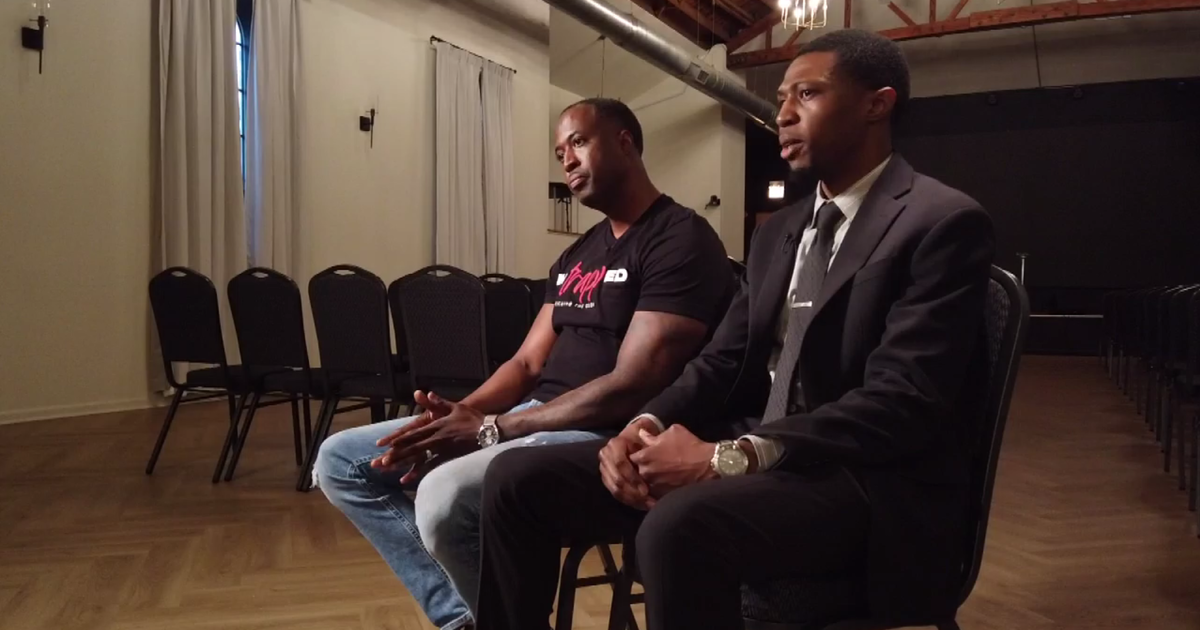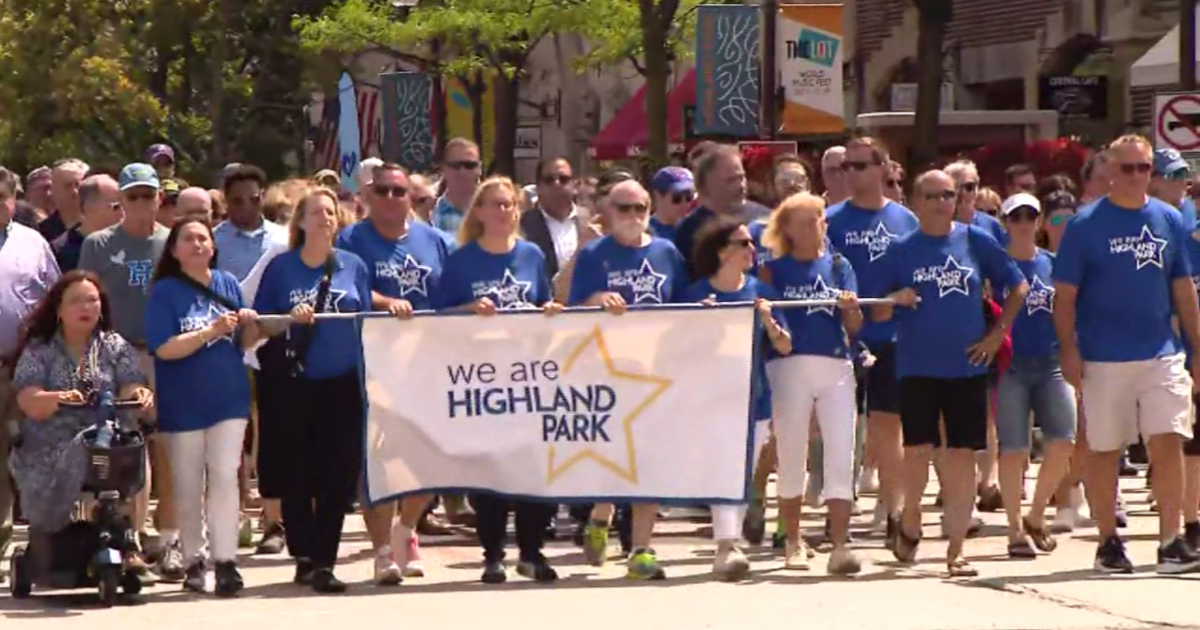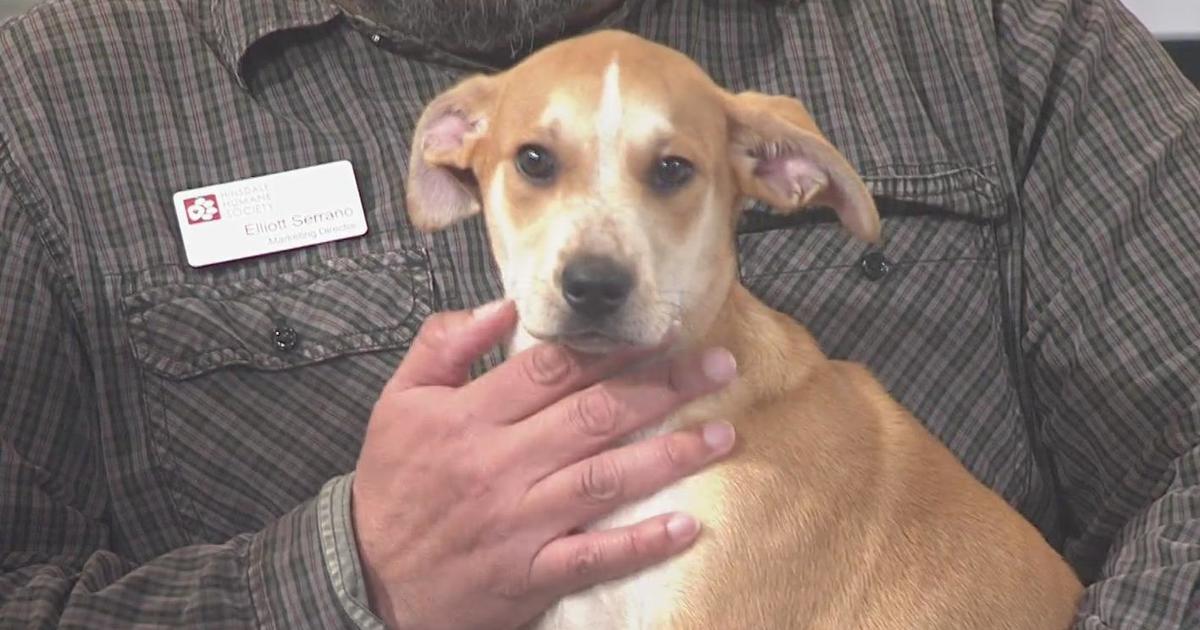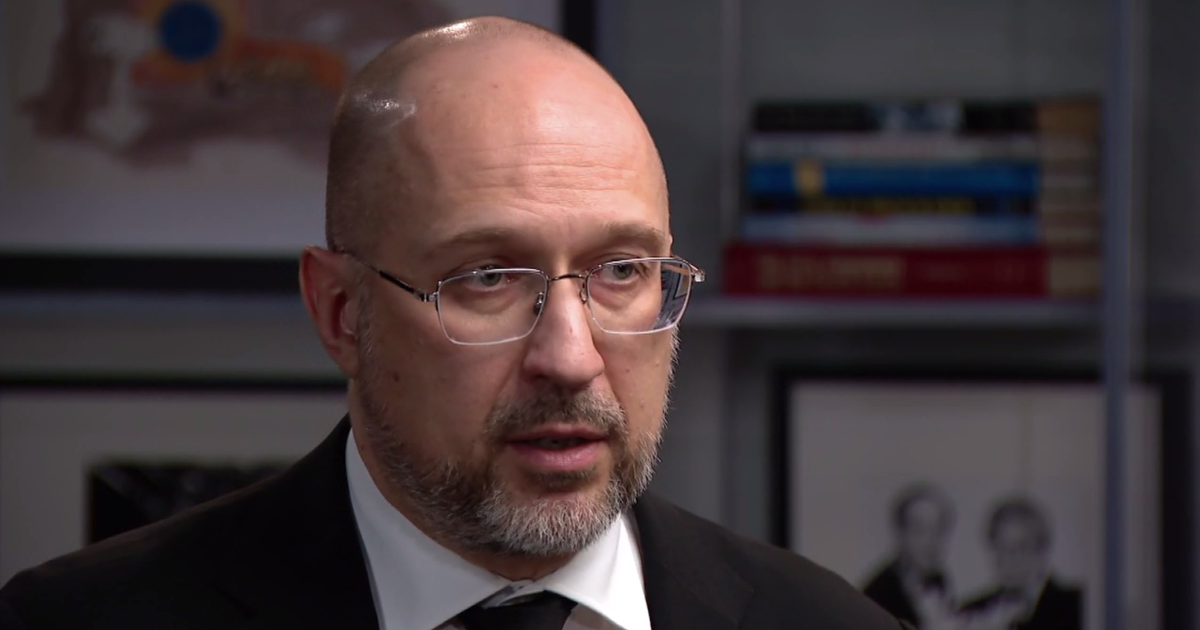Defiant Rod Blagojevich Sounds Familiar Note Upon Return Home From Prison: 'I Didn't Let You Down'
CHICAGO (CBS) -- Calling himself "a freed political prisoner," and sporting a fresh shaving cut on his chin, an unapologetic former Gov. Rod Blagojevich said he plans work to support wrongfully convicted inmates, now that he's been released early from prison.
"I hope now, looking to the future, that I can draw from my life experience, particularly those over the last eight years in prison and 11 years since this all came to us, and do something to try to fight for people who have been wrongfully incarcerated," Blagojevich said outside his Ravenswood Manor home on Wednesday, surrounded by his wife,Patti, and daughters, Annie and Amy.
As Blagojevich spoke to dozens of reporters, photographers, well-wishers, and others gathered outside his house, he repeatedly wiped blood from his chin, after cutting himself shaving.
"I'm bruised, and I'm battered, and I'm bloody," he said. "It's been a long time since I've shaved with a normal razor, and it takes a little practice."
While his time in prison might have changed him in some ways, Blagojevich still displayed many of the traits he was famous for as governor -- quoting scripture and poetry, talking about his immigrant parents, comparing himself to a boxer (he had seven amateur fights in the 1970s), and arriving nearly 30 minutes late for a press conference scheduled at his own house.
Meantime, Blagojevich expressed no remorse for the crimes which landed him in prison, instead painting himself as the victim of overzealous prosecutors, as he had done throughout his two trials.
"I'm returning home today from a long exile, a freed political prisoner. I want to say again to the people of Illinois who twice elected me governor, I didn't let you down. I would have let you down if I gave into this," Blagojevich said. "From beginning to end, this was persecution masquerading as prosecution."
Mayor Lori Ligthfoot, a former federal prosecutor, said, "Obviously, the record says something entirely different."
"I suspect that the former governor, now having been freed by President Trump under circumstances that are dubious at best, we'll hear a lot from him in the coming days," she said.
The mayor said men and women who have served time in prison return to Chicago every day, and it's a shame they don't get the attention Blagojevich is getting.
"Many of them have great needs, great needs that we are trying to address as a city. But the difference between most of them and Rod Blagojevich is that they accept responsibility for the crimes that they have committed. They are willing to do what's necessary to make amends for the harm that they caused," she said. "What I would expect, and we have not seen, is one ounce of contrition from this man who held the highest office in our state and used it in a way that is shameful; and that as a consequence of his prosecution and conviction by a jury of his peers, still has no capacity for acceptance of responsibility."
For his part, in addition to his plans to help wrongfully convicted inmates, Blagojevich said he wants to do something to help non-violent convicts who have been "over-sentenced" for their crimes. He said he knows what happens to the families of convicted felons who are forced to spend years away from their families.
"Unfair and cruel oversentencing is the rule, it's not the exception. Equal protection under the law doesn't exist," he said.
His defiant tone on Wednesday was a stark contrast to his sentencing hearing in 2011, when he admitted to making "terrible mistakes" and apologized to the voters of Illinois.
"I'm here convicted of crimes. The jury decided that I was guilty, and I am accepting of it, and I acknowledge it, and I am unbelievably sorry for it," he said at the time.
Blagojevich returned home from prison around midnight Tuesday night, after nearly eight years behind bars, following his 2011 conviction for among other things, trying to sell an appointment to the U.S. Senate seat once held by Barack Obama before he was elected president in 2008. A federal jury also convicted him of charges he tried to shake down a racetrack owner, a tollway construction company executive, and the CEO of a children's hospital; and for lying to the feds to cover it all up.
While an appeals court later overturned some of his convictions, it upheld most of them, and the courts ultimately upheld his 14-year sentence.
A day after President Donald Trump commuted his sentence to set him free early from a federal penitentiary in Colorado, Blagojevich described himself as a "Trumpocrat," and said he would vote for Trump in the upcoming election if he could.
What the former governor apparently didn't realize is Illinois is one of the few states where convicted felons regain their voting rights as soon as they're released from prison, so he indeed can vote for Trump in the 2020 elections.
Blagojevich said he and his family want to express their "deepest gratitude" to Trump for granting him clemency.
"As a Republican president and a Democratic governor, he didn't have to do this, but President Trump is not a typical politician. He's tough, he's outspoken, he gets things done," Blagojevich said. "He has the courage to challenge the old way. He's the one who's actually fighting to bring real change, that's why he gets so much pushback. But notwithstanding being tough, he's also a man with a kind heart. He sees wrong and he tries to right it."
Blagojevich also said reuniting him with his wife and children was "the kindest gift they've ever received."
His daughters, Amy and Annie, who were 15 and 8, respectively, when he went to prison, are now 23 and 16. Amy recently earned her master's degree at University of Edinburgh, and Annie now has her driver's license.
"Most of all, I'm thankful to you Mr. President for giving my daughters their father back," Blagojevich said.
Blagojevich's commutation came more than a year after President Trump first hinted he might do so. The former governor credited another man as a liaison who helped his case.
"I want to thank this mystery man, a young man who brought all this about. I just met him yesterday, and this is Mark Vargas. He's quite a guy. He's the kind of guy who can get you out of prison if you get yourself stuck there," Blagojevich said.
Vargas, a self-described Washington insider, accompanied Blagojevich on his plane ride home. CBS 2 Political Investigator Dana Kozlov talked with Vargas last fall, after he became Blagojevich's spokesman.
"I'm in direct contact with Jared Kushner," Vargas said on Oct. 24.
Vargas said in October that Kushner, President Trump's son-in-law, fully supported the idea of Blagojevich's release.
While the former governor described himself as the victim of a "corrupt criminal justice system," who was prosecuted for ordinary political horse-trading, jurors and appeals courts repeatedly have said there is substantial evidence he was guilty of extortion, conspiracy, and fraud.
"The evidence, much of it from Blagojevich's own mouth, is overwhelming. To the extent there are factual disputes, the jury was entitled to credit the prosecution's evidence and to find that Blagojevich acted with the knowledge required for conviction," judges for the 7th Circuit Court of Appeals wrote in 2015 as they denied his bid to throw out the case against him.
Specifically, the judges rejected Blagojevich's argument that he should not have been convicted of a crime because none of the charges alleged an explicit quid pro quo exchange of one thing for another.
"The statute does not have a magic-words requirement. Few politicians say, on or off the record, 'I will exchange official act X for payment Y.' Similarly per-sons who conspire to rob banks or distribute drugs do not propose or sign contracts in the statutory language. 'Nudge, nudge, wink, wink, you know what I mean' can amount to extortion under the Hobbs Act, just as it can furnish the gist of a Monty Python sketch," the judges wrote.
The jurors who convicted Blagojevich agreed that the evidence of his guilt was indisputable.
"Some of the evidence was overwhelming; I think that's where we found, just, there was no other way of going," jury foreman Connie Wilson said after the verdict. "Once you delve into the evidence, it was pretty clear to us."
Jurors also said Blagojevich obviously tried to manipulate them when he testified at trial, by trying to suggest personal connections, and appeal to their individual tastes and personalities.
For example, one juror was a Boston native, and another was a librarian, and Blagojevich testified about his love of Boston and his personal library at home.
"As soon as I head Boston mentioned, I'm turning to the other jurors there too, just giving them a look," said John McParland, a juror who was originally from Boston.
Jessica Hubinek, a librarian from Carol Stream who served on the jury, said it was clear to her Blagojevich tried to target his testimony toward the jurors.
"There were times that were very obvious it was manipulation, particularly when he showed pictures of his library or talked about going to the library," she said the day Blagojevich was sentenced. "I think that he does enjoy libraries, he does enjoy going to libraries, but I don't know that really needed to be mentioned in his testimony."
While the former governor had dozens of supporters around him on Wednesday, there were also critics.
Kozlov wanted to ask him what he would say to those who do not think he should have been granted clemency. But Blagojevich did not take any questions.
While now out of prison, Blagojevich is not yet entirely a free man. He still faces two years of supervised release – the federal equivalent of parole – which requires him to report to a probation officer on a regular basis, and prohibits him from leaving the state without permission, among other restrictions.



